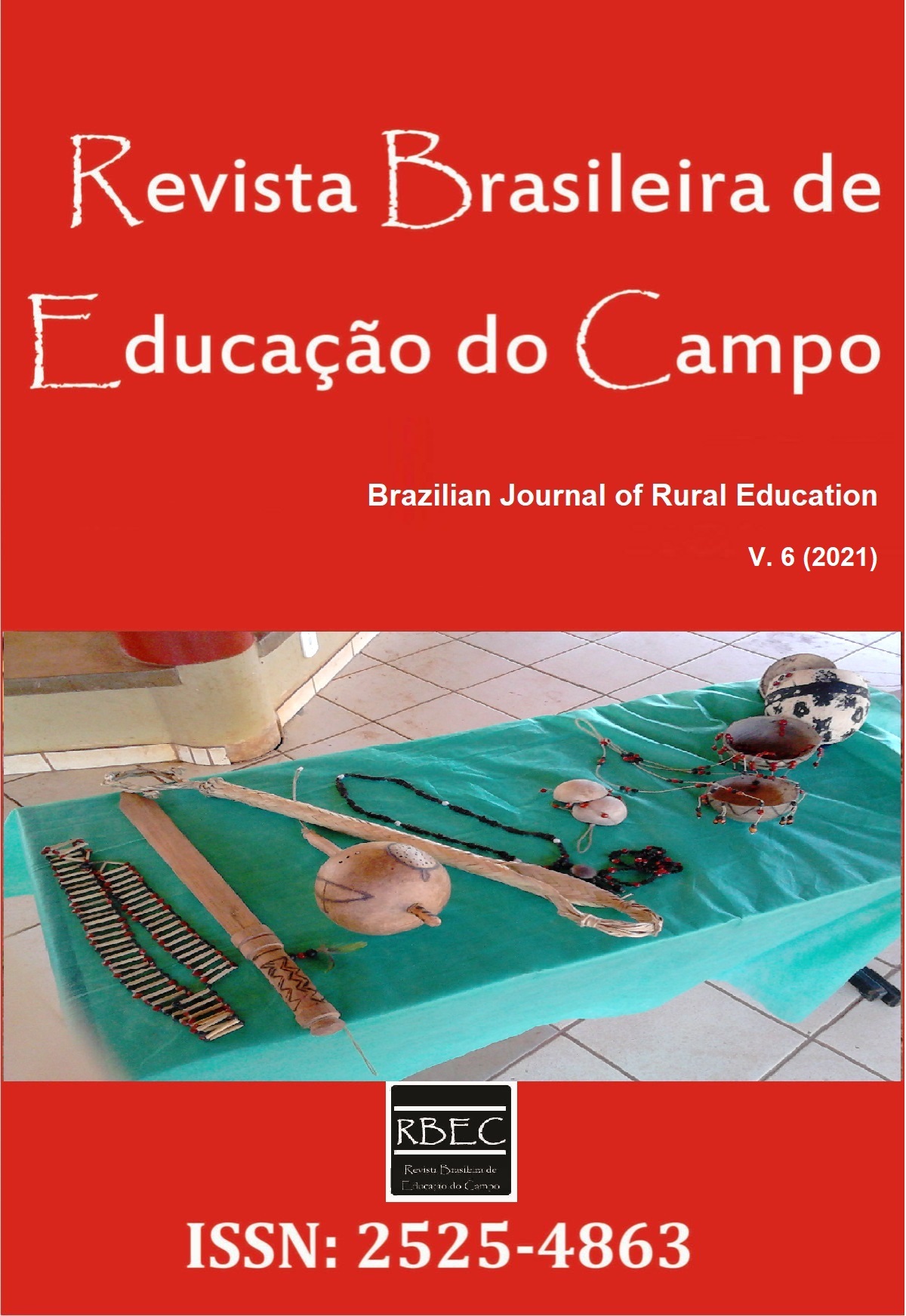The Degree in Rural Education in the state of Goiás: graduates’ views on the multiple learned in the training of countryside educators at UFG and UFCat
DOI :
https://doi.org/10.20873/uft.rbec.e12971Résumé
ABSTRACT. The study proposed here focuses on the discussion of Rural Education, as well as the theoretical and pedagogical principles that guided the Licentiate Degree in Rural Education courses in the state of Goiás during their implementation. The objective of this work is to present the views of the graduates of the course on the process of their formation and the appropriation of academic and political concepts of Rural Education within the two courses. To achieve the research objectives, theoretical research and documentary research were used and field research. From the application of a questionnaire with open and closed questions that brought elements about the students' perception about their training process in the course and the consequences in their professional performance. The subjectivity of the graduates' views leads us to reflect on the importance of the Licentiate Degree in Rural Education course beyond the university, in view of the advances and setbacks that limit us in the institutional space of Rural Education. Anyway, there is a consensus that training at both universities was able to promote training based on awareness of the role of these students in their communities, being agents of change in their communities.
Téléchargements
Références
Arroyo, M. G. (1999). Educação básica e movimentos sociais. In Arroyo, M. G., & Fernandes, B. M. (Orgs.). A educação básica e o movimento social do campo (pp. s./p.). Brasília: Articulação Nacional por uma Educação Básica do Campo.
Carneiro, M. J. (1998). O ideal rurbano: campo e cidade no imaginário de jovens rurais. In Silva, F. C. T., Santos, R., & Costa, F. C. (Orgs.). Mundo rural e política: ensaios interdisciplinares (pp. 95-117). Rio de Janeiro: Campus.
Caldart, R., Pereira, I. S. A. P., & Frigotto, G. (Orgs). (2012). Dicionário da Educação do Campo. Rio de Janeiro, São Paulo: Escola Politécnica de Saúde Joaquim Venâncio, Expressão Popular.
Castro, A. G. (2020). Do Rural ao Campo: Formação de professores para qual educação? (Tese de Doutorado). Universidade Federal Fluminense, Niterói. Recuperado de:
https://app.uff.br/riuff/handle/1/16781
Edital N. X/2012. (2012). Edital de seleção SESU/SETEC/SECADI/MEC.
Fernandes, B. M. (2012). Território Camponês. In Caldart, R. S., et al. (Orgs.). Dicionário da Educação do Campo (pp. 744-748). Rio de Janeiro: Escola Politécnica de Saúde Joaquim Venâncio; São Paulo: Expressão Popular.
Molina, M. C. (2002). Desafios para o educador e a educadora do campo. In Koling, E. J., Cerioli, P., & Caldart, R. S. (Orgs.). Educação do Campo: identidade e políticas públicas (pp. 26-30). Brasília: Articulação Nacional. Coleção Por uma Educação do Campo.
MST. (2004). Movimento dos Trabalhadores Rurais Sem Terra. Boletim da Educação n. 9. Educação no MST, balanço 20 anos. 1. ed. Setor de Educação do MST.
Paula, H. V. C. (2020). Territórios e projetos em disputa na institucionalização dos cursos de licenciatura em educação do campo (Tese de Doutorado). Universidade Federal de Uberlândia, Uberlândia. Recuperado de:
https://repositorio.ufu.br/handle/123456789/29195
Ribeiro, M. (2010) Movimento camponês, trabalho e educação. São Paulo: Expressão Popular.
Stédile, J. P., & Fernades, B. M. (2012). Brava Gente: a trajetória do MST e a luta pela terra no Brasil. 2. ed. São Paulo.
Téléchargements
Publié-e
Comment citer
Numéro
Rubrique
Licence
Proposal for Copyright Notice Creative Commons
1. Policy Proposal to Open Access Journals
Authors who publish with this journal agree to the following terms:
A. Authors retain copyright and grant the journal right of first publication with the work simultaneously licensed under the Creative Commons Attribution License that allows sharing the work with recognition of its initial publication in this journal.
B. Authors are able to take on additional contracts separately, non-exclusive distribution of the version of the paper published in this journal (ex .: publish in institutional repository or as a book), with an acknowledgment of its initial publication in this journal.
C. Authors are permitted and encouraged to post their work online (eg .: in institutional repositories or on their website) at any point before or during the editorial process, as it can lead to productive exchanges, as well as increase the impact and the citation of published work (See the Effect of Open Access).














